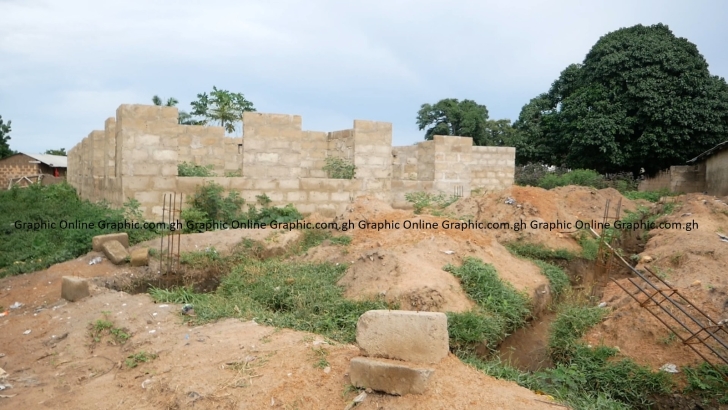The recent clash at Gbenyiri, a farming community in the Sawla-Tuna-Kalba District in the Savannah Region, is yet another painful reminder of how land disputes continue to destabilise the peace and stability in certain portions of Ghana.
What began as a disagreement over a parcel of land on August 24, this year, escalated into violent clashes between rival factions, resulting in the loss of at least 31 lives and the displacement of 48,000 people.
Houses were razed, farmlands devastated, and many residents fled their homes to seek refuge in nearby communities and temporary camps mounted by the National Disaster Management Organisation (NADMO) at Sawla.
To contain the violence, the Ministry for the Interior imposed a curfew from 8 p.m. to 5 a.m., banned the carrying of offensive weapons, and prohibited the wearing of war regalia or multiple riders on motorbikes in the conflict-affected areas.
While these measures were necessary to restore calm, they also disrupted social and economic activities.
After a month at the camp, the displaced persons safely returned to their respective homes last week.
Families were finally reunited with their homes, farmlands, and livelihoods, but many came back to ruins and haunting memories.
The sad story of Lizzy, the little girl who lost both parents to the conflict, remains a painful reminder of the cost of the violence and the responsibility of the state to ensure it never happens again.
It is also worth noting that while some of the displaced persons at the Vonkoro camp in the Ivory Coast have started returning to their respective communities, those who fled to Burkina Faso remain in dire need of assistance.
Their plight should be urgently addressed by authorities to ensure that none of the displaced persons is left behind.
It is important to commend NADMO, the Ghana Red Cross Society, Olam Ghana and various humanitarian agencies whose timely support kept the displaced families alive, and gave them a measure of dignity in their darkest moments.
Their intervention was indispensable, and their continued support remains critical.
The government cannot pat itself on the back simply for imposing curfews and supervising resettlement.
This is because curfews are temporary painkillers, not cures. It must move beyond firefighting and tackle, through dialogue, the underlying tensions over land ownership, authority and marginalisation that have festered for many years.
Until the root issues are addressed head-on, the relative calm restored in the area will be shattered anytime soon.
The traditional leaders and elders must also be called out.
Their silence or complicity in disputes over land and power has often fanned the flames.
They must now prove they are leaders of peace, not patrons of conflict, and if they fail to mediate fairly and inclusively they fail their people.
Above all, the seven-member committee set up by the government to find a lasting solution to the conflict must speed up its work.
The innocent victims who bore the brunt of the devastation and the heinous crimes perpetuated by those criminals are expecting justice.
Every delay leaves wounds unhealed, and risks a relapse into violence.
The people deserve answers, firm decisions, and an end to uncertainty, not endless deliberations. But most importantly, the committee must go beyond quick fixes and courageously confront the root causes of the conflict, no matter how politically sensitive.
The Daily Graphic also urges international partners such as UNDP, ECOWAS and UNICEF to join hands with Ghana in the peacebuilding and reconstruction effort.
Their expertise in conflict resolution, humanitarian support, and community resilience can help ensure that Gbenyiri not only heals but thrives again.
We believe that Gbenyiri’s scars are Ghana’s scars, and failure to act decisively on the underlying causes now will only guarantee that the cycle of violence returns to haunt us all.
We also demand clear timelines, transparency and accountability from the seven-member committee and all authorities involved in the mediation process.
The reports must not gather dust on shelves; rather, decisions must be communicated openly and acted upon swiftly.
Only through visible commitment and measurable progress can trust and peace be restored and the people assured that “never again” truly means never again.

